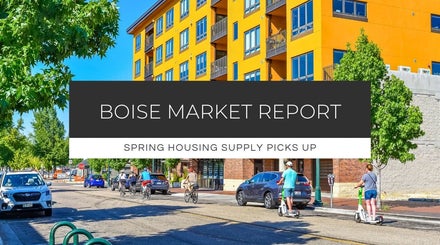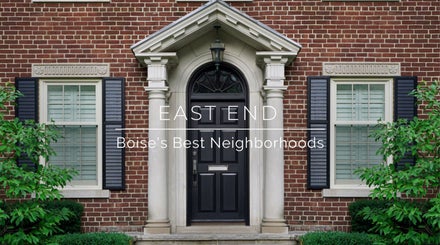
Buying a foreclosure can be an excellent opportunity to save money on a new property purchase. The key is to do your homework and go in with your eyes open.
In most parts of the country, home prices seemingly increase by the month. Despite the fact that there are fewer Boise foreclosures for sale today than there have been in the past few years, there is still very strong interest from buyers considering buying a foreclosure. With the potential to save some hard-earned money, it probably doesn’t come as a surprise.
So what exactly is a foreclosure and how do they work? When different people mention foreclosures, they are not always referring to the same type of foreclosure. Let’s review the five main types of foreclosures, how they differ, and the common pitfalls to avoid.
Pre-Foreclosures and Short Sales
When a homeowner stops paying their mortgage, maybe due to a job loss or medical debt, the lender will issue a notice of default (NOD). At this point, the property owner still has the option to bring the loan current. If the owner does not bring the outstanding mortgage current and continues to fall further behind on their payments, the lender will begin the foreclosure process. The property is then considered to be in pre-foreclosure.
Here is where it can get tricky. In most cases, the owner will try and sell the property to avoid an actual foreclosure from taking place. If the balance owed on the loan is less than the value of the home, the owner can simply sell the property and pay off the lender with the proceeds. In this case of pre-foreclosure, the lender has very little involvement in the transaction.
In a situation where the seller owes more than what the property is worth, they can perform a short sale. In non-technical terms, a short sale is a lender agreeing to be "shorted" on the loan balance; in other words, accept less than what is actually owned. As you can imagine, short sales are not very popular with lenders. This can draw the process out for months or even years. When the seller owes more than the home is worth and they are behind on the payments, the sale of the property is then considered a pre-foreclosure short sale.
Note: If an owner is trying to sell the home for less than the balance owed and is current on their loan payments, it is considered a standard short sale.
Foreclosure Auctions
If the current homeowner hasn’t sold the property and no payments have been made, a judge will order a foreclosure auction. These auctions are commonly referred to as a trustee sale or sheriff's sale, depending on the state. Foreclosure auctions rarely happen on schedule and are often postponed for months or even years. Here is a crucial difference- foreclosure auctions occur before the lender takes physical possession of the property. These are the ones you hear about taking place on the courthouse steps.
This must be the best way to score a good deal, right? Not likely. The auction begins at the amount that the lender is owed. The problem is, rarely does a home make it to auction where the balance is less than the property's market value. In other words, the minimum bid is usually set higher than what the property is worth.
Buying a foreclosed home at auction is not for the first-time buyer. These auctions require all-cash purchases and are attended by real estate pros. There are a myriad of intricacies that can trip up even a skilled foreclosure buyer. (Auctions can also be cutthroat; I’ve seen experienced bidders intentionally drive up prices on newbies.)
Essentially what you’re buying is the loan itself. In many cases, there are other liens on the property that you may still be required to pay. The home may have been vacant for years or, commonly, the original homeowner, or even a squatter, may still occupy the property. Disturbing the occupant is illegal and no inspections are allowed. In either case, vandalism is common. If the property is still occupied, you are responsible for evicting the current occupant.
Government Owned Foreclosures
The how-to process of buying a government owned foreclosure can vary based on the government entity selling the property. Foreclosures that were originally purchased with FHA loans are sold by the Department of Housing and Urban Development (HUD).
Purchasing a HUD foreclosure is a pretty straight forward process. HUD will clean out the home, removing debris and often, flooring. Then the agency will perform a basic inspection and appraisal, which is made available to prospective buyers. The HUD home is then listed on the local MLS at the appraised price.
HUD requires a licensed real estate agent to be on both the buying and selling sides of the transaction. In most circumstances, they provide a small window where they will only consider offers from buyers that intend to live in the property. In a competitive market, this can give potential homeowners an advantage by barring competition from investors.
Other government agencies like Fannie Mae and Freddie Mac have their own process of listing foreclosures for sale. In the past, they would offer special financing for owner-occupants, but that’s rarely the case anymore. While they typically do a presale inspection, you will never see a copy of it. (Neither agency is known for being particularly buyer friendly)
Fannie, in particular, is notorious for overpricing and refusing to accept offers below their asking price for up to ninety days. In locations where the market is favorable towards sellers, agencies like Fannie and Freddie will even perform updates to homes, like new paint and flooring. Improvements don't leave much room for negotiations or discounts. Buyer beware- It is not uncommon to end up paying more than a comparable home for these types of government owned properties.
Bank Owned Foreclosures (REO)
When most people think of a foreclosure, bank owned foreclosures are usually what they have in mind. In industry terms, bank owned foreclosures are referred to as REO, meaning “real estate owned.” At this point, the lender has officially taken possession of the property and paid off or removed any outstanding debts or liens associated with the home. No one will be living there, and you will have the opportunity to inspect it before making an offer.
Buying a bank owned home can vary greatly from one lender to another. Keep two important points in mind. From a financial statement standpoint, the bank has already taken a loss when they officially foreclosed on the home. Hence, anything they make by selling the property is pure profit for them.
In the past, when they were faced with an avalanche of future foreclosures, they were more willing to quickly sell even if it meant taking a loss. In some states, they may still be faced with potential foreclosures, but in most places, that’s no longer the case. They are far from desperate sellers and have little need to quickly unload a property if it means leaving money on the table.
Second, banks and their brokers are particularly good at determining local real estate conditions and current home prices. They are more likely to try and take advantage of a lack of inventory than be taken advantage of by it. When determining their prices, getting a formal appraisal or at least a BPO (Broker Price Opinion) to assign a value in the local market, is standard.
How to Buy a Foreclosure
As you have probably noticed, buying a foreclosure can be more time consuming and intimidating than a traditional sale. However, you can do a few things to set the odds in your favor and make your home search a successful one.
First, you need an agent who knows the ins and outs of how these sales work and will help guide you every step of the way. Not all transactions involving foreclosed homes work the same, and every bank is slightly different. Having an agent with experience in these types of transactions can be a “make or break” for this type of purchase.
Second, you need to know how you’re going to pay for the home. Having your financing lined up beforehand is not negotiable once it’s time to extend a purchase offer. A loan pre-approval or proof of funds for all cash transactions must accompany any offer sent to the property holder. This ensures the seller that you are a serious buyer and can get the purchase closed.
Foreclosure auctions require the purchase to be made with all cash. Most other transactions can be financed like any other type of real estate purchase. In fact, many foreclosures are bought with conventional 30-year mortgages, FHA, and VA loans. For properties that may need a little more TLC, renovation loans like the 203(k) are popular, as are home equity loans and lines of credit.
As I’ve outlined, with most purchases except trustee sales, you are entitled to a home inspection, which is crucial. Prior to scheduling a home inspection, there’s yet another process of requesting to turn on the utilities. Sometimes this goes relatively quickly, and in others, it can be drawn out. It’s important to know that utility activation for a home inspection may be a cost that you, as the buyer, are responsible for.
If there is anything that will torpedo a bank owned deal for most buyers, it’s usually a costly repair. In some instances, the bank may discount for a serious problem. By serious, I mean mold in the attic, crawl space, or foundation issues (I have personally bought foreclosures with both). What, if anything, the lender will negotiate will vary by lender and even property.
The Process of Buying a Foreclosed Home vs. a Traditional Sale
When you buy a bank owned property, you likely won’t be dealing with just one person on the other end of the transaction. There are still many channels an offer has to go through before you find out whether or not your offer was accepted. Patience is key here. With a traditional sale, you will give the seller a deadline to respond to your offer; 24 to 48 hours is typical in Idaho. On the other hand, banks could take days or weeks and will completely ignore any deadline.
As mentioned above, know that when buying a foreclosed home, it will be sold in “as is” condition– the emphasis here couldn’t be stronger. The way the property looked before you made the offer is going to be the exact same way it looks when you close. So if there’s peeling paint, soiled carpets, or junk in the yard- Welcome to your first home project!
Another important difference to keep in mind, you will likely need to be able to pay for your own closing costs. There usually aren’t many freebies that the bank is willing to part with. Consulting with your real estate agent and the lender is essential here, so there aren't any surprises come closing day.
The Truth About Buying a Foreclosed Home
While purchasing a foreclosure can be a great option for those who are looking for an opportunity to earn some sweat equity. The reality is, it may not be everyone’s cup of tea. Knowing some of the potential pitfalls ahead of time may shed some light on whether pursuing a foreclosed home is in the cards for you. As my reader, I have two pieces of advice. Do your research and hire a seasoned real estate agent who knows the local market and is intimately familiar with how these transactions work. This could mean a make or break for your sanity and also for a profitable deal.
Originally published in February 2016, updated July 2020.







Leave A Comment